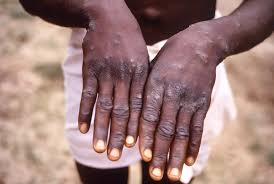Ministry of Health cautions public against Monkeypox
The ministry said it has activated an emergency response plan together with its agencies like the Ghana Health Service (GHS) in case of any eventuality.
- Advertisement -
The Ministry of Health (MOH) has advised members of the public to report likely symptoms of Monkey pox (Mpox) to the nearest health facility in order to combat possible spread in the country.
Symptoms generally include fever, headache, muscle aches and backaches, swollen lymph nodes, chills, exhaustion, and a distinctive rash characterised by lesions that progress through several stages before falling off.
- Advertisement -
A statement issued by the Public Relations Unit of the MoH, in Accra on Friday, said although the country has not recorded any case of Mpox this year, it was on high alert to address a potential threat following the World Health Organisation’s (WHO) declaration of the disease as a Public Health Emergency of International Concern (PHEIC).
- Advertisement -
The ministry said it has activated an emergency response plan together with its agencies like the Ghana Health Service (GHS) in case of any eventuality.
“The MoH has issued a directive to all implementing agencies and stakeholders to heighten surveillance at all levels. This included all points of entry such as airports and border crossings as well as increased vigilance within communities nationwide.”
“The GHS has also released a technical advice on the symptoms of Mpox and the necessary steps for early detection, reporting and treatment.”
The statement reaffirmed MoH’s commitment to leading the provision of Universal Health Coverage (UHC) in Ghana urging citizens to cooperate with health authorities to safeguard public health and safety.
On August 14, the WHO under the International Health Regulations (2005) declared Mpox as a PHEIC following an upsurge in cases particularly on the African region and the likelihood for it to spread beyond the continent.
So far, the disease has affected more than 15,000 people in 18 countries on the continent, claiming over 150 lives.
- Advertisement -
A more contagious variant known as Clade 1b is said to be highly responsible for the recent surge in cases particularly among children through routine contact.
MPOX is a zoonotic disease caused by a virus that belongs to the same family as that which causes smallpox.
It is mainly transmitted to humans through direct contact with the bodily fluids of infected rodents or primates.
Human-to-human transmission primarily occurs through close personal contact with an infected individual via respiratory droplets, direct contact with bodily fluids or indirect contact with lesion material (e.g., contaminated clothing or bedding).
Symptoms of Monkeypox typically appears within five to16 days after exposure but can develop up to 21 days.
Symptoms generally include fever, headache, muscle aches and backaches, swollen lymph nodes, chills, exhaustion, and a distinctive rash characterised by lesions that progress through several stages before falling off.
Most people fully recover from the disease within four weeks and is dependent on how mild or severe symptoms present in a patient. It can, however, cause death in extreme cases.
Source:newslinkghana.com
- Advertisement -


